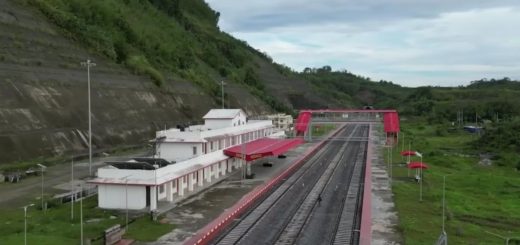Delhi CM Rekha Gupta Leads Yamuna ‘Aarti’ on Day 1 as BJP Reaffirms Commitment to River Clean-Up
Summary:Delhi Chief Minister Rekha Gupta, along with her ministers, marked the BJP’s return to power by participating in a symbolic “aarti” at Vasudev Ghat on the first day of their tenure. This event highlighted the BJP’s commitment to cleaning the Yamuna River, a key electoral promise. The party’s manifesto outlined plans for riverfront development and the creation of a “Yamuna Kosh” to fund the restoration. The Lieutenant Governor’s office has already started efforts to remove silt and waste from the river, expand sewage treatment, and improve waste management. The BJP’s victory in the Delhi assembly elections was driven by concerns over pollution and civic issues, particularly the failure of the Aam Aadmi Party to address these challenges.
Delhi CM Rekha Gupta Leads Yamuna ‘Aarti’ on Day 1 as BJP Reaffirms Commitment to River Clean-Up
In a symbolic gesture signaling the Delhi BJP’s political resurgence after 26 years, Chief Minister Rekha Gupta and her cabinet ministers participated in a river “aarti” at Vasudev Ghat on the first day of their tenure. The aarti, inspired by the traditional evening ceremonies at the ghats of Haridwar and Varanasi, not only underscored the BJP’s return to power but also served as a reaffirmation of the party’s pledge to restore the Yamuna River, which has long been a vital part of the city’s identity but is now heavily polluted.
Upon taking office, Chief Minister Gupta made an early commitment to addressing key electoral promises. “We will fulfill all the promises we have made… At 5 PM, we will go to Yamuna Ghat for the aarti, followed by a cabinet meeting at 7 PM,” Gupta stated while assuming charge at the Delhi Secretariat.
Ahead of the Delhi Assembly elections, the BJP had made a significant pledge to clean the Yamuna within three years. Prime Minister Narendra Modi, in his victory speech, emphasized that the party would make the Yamuna “the identity of Delhi,” expressing confidence that with determination and effort, the river’s restoration was an achievable goal.
The BJP’s election manifesto, titled the “Viksit Bharat Sankalp Patra,” outlined plans for the establishment of a “Yamuna Kosh” to fund the river’s revitalization and riverfront development projects.
The cleanup plan, as announced by the Lieutenant Governor’s office, consists of four main components: removing trash and silt from the river and its drains, including the Najafgarh drain which is a major contributor to pollution, expanding sewage treatment capacity to 1,000 million gallons per day, and increasing the effluent treatment plant capacity to 220 MLD. Additionally, the government has committed to regular monitoring of industrial units, sewage systems, and wastewater treatment plants.
Work on this ambitious initiative began ahead of the Chief Minister’s swearing-in, with equipment such as skimmers, weed harvesters, and dredgers already deployed to remove silt and waste from the river.
The BJP’s landslide victory in the recent assembly elections, securing 48 out of 70 seats, followed a campaign centered on addressing civic concerns, including the state of the Yamuna, air pollution, and dissatisfaction with the Aam Aadmi Party’s (AAP) handling of these issues despite its control over the municipal corporation.
The issue of Yamuna pollution became a focal point late in the campaign, sparked by AAP leader Arvind Kejriwal’s accusations that the Haryana government was “poisoning” the river. In response, the BJP and Congress quickly highlighted AAP’s failure to deliver on its promises to clean the river, despite spending over Rs 6,000 crore in the past five years.
With this victory, the BJP has positioned itself as the primary force in addressing Delhi’s environmental challenges, particularly the urgent need for a clean and sustainable Yamuna River.
Last Updated on: Friday, February 21, 2025 6:04 pm by Pioneer Today Team | Published by: Pioneer Today Team on Friday, February 21, 2025 6:04 pm | News Categories: India



